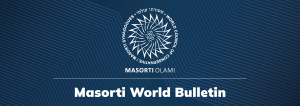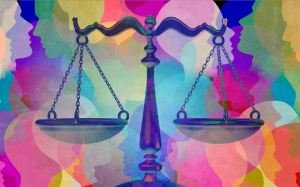

This week marks the International Day of Social Justice, which gives us an opportunity to reflect on the reality in which we live in, and our place within it. One of the most prominent tensions in Judaism in the post-modern era is the tension between the community (the collective) and the individual.
Judaism emphasizes the importance of society to man: “And the Lord God said, ‘It is not good for man to be alone; I will make a fitting helper for him” (Genesis 2:18). Already from the creation of man, there is a warning that it is not good for man to be alone. Hillel also addressed the issue by saying: “do not separate yourself from the community” (Avot 2:4).
In the post-modern society in which we live, the dominance of individualism as a higher value stands out. Hillel comes back and looks to resolve the tension created by individualism when he teaches in the chapters of Avot 1:14: ” He used to say: If I am not for myself, who is for me? But if I am for my own self, what am I? And if not now, when?”. Many tend to forget the second line of the Mishnah: “But if I am for my own self, what am I?”. In my opinion, this is a clear decision in Judaism. In relation to or concern for another, the ‘I’ becomes whole.
In honor of the International Day of Social Justice, we chose to create a study page with texts from the sources and the works of modern thinkers in order to offer a Masorti/Conservative view of the responsibility of the individual towards one another or the vulnerable in society.
Special thanks to Rabbi Guido Cohen from our movement who wrote a dedicated text for our study page.
Blessings for better times and good news and praying for the release of all the hostages.
Rabbi Mauricio Balter, Masorti and MERCAZ Olami Executive Director
Click here or on the image below to download a PDF version of the study page.